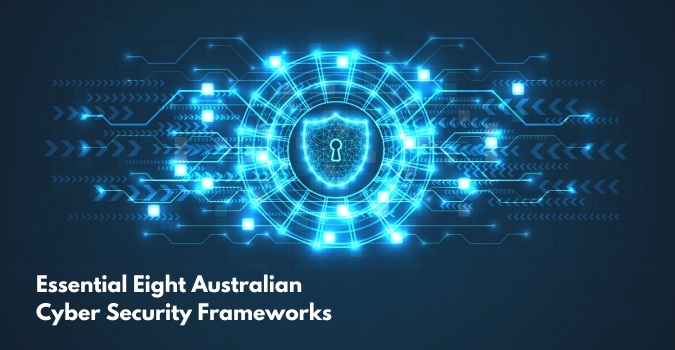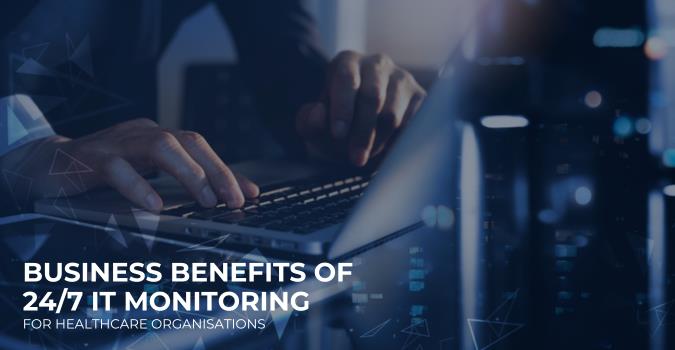Healthcare organisations rely on robust IT systems to manage patient records, facilitate telemedicine and support…

Essential Eight Australian Cyber Security Frameworks
In today’s rapidly evolving digital landscape, cybersecurity has become a critical component for businesses and healthcare organisations across Australia. The Essential Eight, a set of cybersecurity strategies developed by the Australian Cyber Security Centre (ACSC), provides robust guidance on how to protect systems from increasing cyber threats. This technical blog will delve into the Essential Eight Cyber Security Frameworks, its role in cybersecurity risk management, and how it applies to industries, especially in healthcare, which face stringent regulatory requirements.
What is the Essential Eight?
The Essential Eight is a collection of baseline mitigation strategies designed to help Australian organisations reduce the risk of cyberattacks. Initially introduced as part of the Australian Government’s cybersecurity standards, this framework covers a wide array of cybersecurity risk management principles to help organisations build a secure digital infrastructure.
Essential Eight Australian Cyber Security Frameworks
The framework includes the following essential strategies:
1. Application Control
Protect your system by preventing unauthorised applications from executing, which limits potential vulnerabilities. This is especially crucial for healthcare systems, where running unauthorised software could jeopardise patient data.
2. Patch Applications
Ensuring that software applications are kept up-to-date reduces the risk of vulnerabilities being exploited. For healthcare providers, this means regularly updating electronic health records (EHR) and other critical systems to mitigate risks.
3. Configure Microsoft Office Macro Settings
Disabling macros where not required is a best practice, as malicious actors often exploit macros in Microsoft Office documents to gain unauthorised access.
4. User Application Hardening
By blocking Flash, ads, and Java, organisations reduce their exposure to exploits that can compromise cybersecurity solutions. This is particularly beneficial for healthcare systems where patient and clinical data must remain secure.
5. Restrict Administrative Privileges
Administrative accounts are frequently targeted by attackers. By restricting these privileges, you limit the damage that can be caused by unauthorised access. In healthcare, limiting admin access can help ensure that only authorised personnel have access to sensitive patient information.
6. Patch Operating Systems
Just as application patches are critical, operating system patches are vital for addressing known security vulnerabilities. Ensuring the healthcare system’s operating environment is up to date is essential for healthcare cybersecurity.
7. Multi-Factor Authentication (MFA)
MFA adds an extra layer of security, making it more difficult for unauthorised individuals to access systems. This is a standard requirement in industries such as healthcare where data security is paramount.
8. Daily Backups
Regular backups are critical for ensuring that vital data, such as patient records, can be restored in the event of a breach. Cybersecurity providers recommend daily backups to protect against ransomware and other cyber threats.
Why the Essential Eight Matters for the Healthcare Industry?
The healthcare sector handles an immense amount of sensitive data, including patient records and medical histories. A data breach in healthcare can not only lead to significant financial losses but also violate patient privacy, causing long-term reputational damage.
The Essential Eight strategies provide a solid foundation for healthcare organisations to protect themselves from cyber threats. By implementing these trategies, businesses can reduce the likelihood of successful cyberattacks and ensure that their data is safeguarded.
Benefits of Implementing Essential Eight Cyber Security Frameworks
Reduced Attack Surface
By following the Essential Eight, organisations can reduce their exposure to cyber threats and limit the potential impact of attacks. For cybersecurity providers, offering cybersecurity solutions based on this framework ensures that clients are better prepared to fend off cyberattacks.
Compliance with Australian Cybersecurity Standards
Adhering to Australian cybersecurity regulations, such as the Notifiable Data Breaches (NDB) scheme and the Privacy Act 1988, is critical. Implementing the Essential Eight helps organisations meet these legal requirements while maintaining strong cybersecurity defences.
Improved Data Security in Healthcare
For healthcare providers, the Essential Eight offers clear guidance to protect critical patient data, mitigate the risk of cyberattacks, and ensure operational continuity. With healthcare cybersecurity a top priority, implementing these strategies ensures data integrity and patient trust.
The Role of MedicalIT.Services as Your Cybersecurity Assessor
Implementing the Essential Eight framework can be complex, especially for organisations without extensive cybersecurity expertise. This is where MedicalIT.Services come into play. As experienced assessors of cybersecurity, MedicalIT.Services can help your organisation in several ways:
- Assessment and Gap Analysis: MedicalIT.Services can conduct a thorough assessment of your current cybersecurity posture and identify gaps in your implementation of the Essential Eight strategies.
- Implementation Guidance: They can provide guidance on how to implement each of the eight strategies effectively, ensuring that your organisation meets the required maturity levels.
- Ongoing Monitoring and Compliance: The company can help you maintain compliance with the Essential Eight framework through regular audits and continuous monitoring, ensuring your cybersecurity posture remains strong and resilient.
- Customised Solutions: They can tailor healthcare cybersecurity solutions to fit your organisation’s specific needs and risk profile, ensuring that you are adequately protected against evolving cyber threats.
Conclusion
The Essential Eight framework is a robust and essential tool for enhancing the cybersecurity posture of Australian businesses. By implementing these eight strategies, organisations can significantly reduce the risk of cyber attacks, limit the impact of attacks, and ensure data availability. This framework is particularly important for sectors like healthcare, where data protection and system availability are critical.
Also Read:




